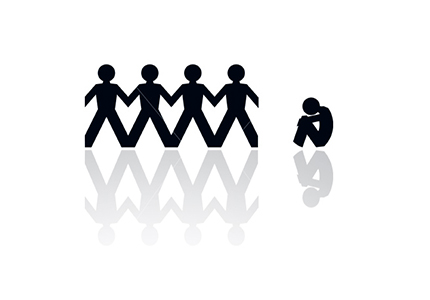
Depression in Nurses: The Unspoken Epidemic
Tears build behind your eyes. Your mind plays over and over how much you want to turn and run, but you can’t. No matter what, you have to keep going because you are strong and people are relying on you. How can you endure it, though, when one part of you wants to scream and one part of you wants to break down and sob? You can do neither, and instead, you hold yourself as taut as a wire over the Grand Canyon.
You are in the elevator on your way up to your unit. Your shift hasn’t started yet, but these feelings are already invading your mind, spreading like tree roots into concrete. It will be worse once you are there, but nurses don’t crack. Nurses don’t break down. They get used to it. Except you can’t get used to it. It is killing you.
You are a nurse with clinical depression, and no one knows—not even you.
Depression is an epidemic in nursing, but no one will talk about it. According to the Robert Wood Johnson Foundation Interdisciplinary Nursing Quality Research Initiative (INQRI), nurses experience clinical depression at twice the rate of the general public. Depression affects 9% of everyday citizens, but 18% of nurses experience symptoms of depression.
If this is such a common occurrence, why don’t nurses talk about it? They are afraid that they will not be trusted with patients and they will not be part of the team. Some of them cannot accept that they need care when they have always been in the caring role. Unfortunately, many nurses just don’t know they have it.
Causes of Nurse Depression
Since depression is so common in nursing, what is causing these men and women to feel this way? The fact that it is ignored is almost inconsequential when you consider the fact that the causes are also ignored. If the causes of this epidemic are not addressed, more nurses will become depressed, patients may be put in danger, and the profession could wind up losing yet another nurse to the stresses of the job.
“Medicine is a profession that doesn’t give much thought to mental illness,” says John M. Grohol, PsyD, the founder, CEO, and editor-in-chief of PsychCentral.com. “It is not within their realm of treatment.” Since medicine is concerned with what it can see, touch, and heal, mental health concerns are often shunted to the side. Nurses not only dismiss the idea of depression in their profession, but they also do it to themselves. This only causes the feelings to multiply.
It also doesn’t help that nursing culture is ruthless by nature.
“Depression is like a cardiac disease: you don’t know you have it. You don’t realize the subtleties,” says Louise Weadock, MPH, RN, the founder and president/CEO of ACCESS Healthcare Services. “Leaders need to create a culture that lifts nurses up. It shouldn’t be a culture in which only the strong survive. Nurses should not be proud of eating their young. Some managers brag, ‘If you can make it on my floor, you can make it anywhere.’”
The culture of survival leads nurses to feeling like they are always under tension—and this can cause anxiety, stress, and depression. Some nurses seem to take great pride in the amount of horrors they have endured, but for those who struggle with depression, living up to this standard and living in the culture only makes them feel like failures.
What are the evidence-based predisposing characteristics of depression, besides culture and neglect? The INQRI study found that certain factors, such as body mass index, job satisfaction, and mental well-being, can lead to clinical depression in nurses.
Furthermore, family problems can exacerbate the stresses a nurse feels, and often nurses feel out of control. They can’t control their shift, their patient load, or even if a patient lives or dies. Helplessness is a feeling that pervades the depressed nurse. When all of these causative factors are coupled with the disruptive cycle of shift work, can depression be far behind?
Nurse-Specific Symptoms
What does clinical depression look like in nurses? All nurses have covered mental health in their schooling and some work on mental health units. It is safe to say that most nurses know the general symptoms of depression, but it is far more subtle than what they were taught. In nurses, the symptoms are nearly buried under a continuously thwarted attempt to hide their feelings.
Guy Winch, PhD, a licensed psychologist and TED speaker, describes the different nuances in sadness and depression on the Squeaky Wheel blog at PsychologyToday.com:
“Sadness is usually triggered by a difficult, hurtful, challenging, or disappointing event, experience, or situation. … [but] when that something changes, when our emotional hurt fades, when we’ve adjusted or gotten over the loss or disappointment, our sadness remits. … Depression is an abnormal emotional state, a mental illness that affects our thinking, emotions, perceptions, and behaviors in pervasive and chronic ways. … Depression does not necessarily require a difficult event or situation, a loss, or a change of circumstance as a trigger. In fact, it often occurs in the absence of any such triggers.”
Nurses often feel this way as well, but other factors and symptoms appear. “Nurses deal with depression by doing more, keep moving, not standing still, not putting their feelings into words,” says Michael Brustein, PsyD. “They power through it.”
Blake LeVine, MSW, founder of BipolarOnline.com, also makes this point about nurse culture and the medical status quo in general: “There is more detachment in medical professionals who are depressed. It is normal to be slightly detached. When a nurse is depressed, they can also become more detached with their family. They are used to being detached, but they can’t bring it home and cry over people [who] are sick. Depressed nurses may cry more over a patient who died. They may get very emotional. Something they used to deal with in the past can get more difficult for them.”
Of course, this need for detachment and getting past the pain can lead to self-medicating. Usually, that takes the form of alcohol or opiates—both downers that can make depression worse.
“All studies show that those with substance abuse problems have depression or anxiety,” states Nikki Martinez, PsyD, LCPC, a verified mental health counselor on BetterHelp.com. “Prescription drug problems are often present, and that becomes their drug of choice. Just take a pill, and the pain is gone. When a nurse is having a bad day, they can’t wait to come home and have a glass of wine.”
In addition to various negative coping mechanisms, nurses exhibit many other symptoms that are obvious to those looking in on the situation. Weadock explains them this way: “Nurses can experience difficulty concentrating, are slow to respond in a crisis, are accident-prone, and have a limited ability to perform mental tasks, such as care mapping, calculating doses, or intervals required for biometric interpretations. They are reclusive with poor interpersonal skills, struggle with time management, and have lower total productivity outcomes than nondepressed workers. They often have a ‘short-fuse,’ leading to explosive outbursts toward patient, family, or coworkers.”
Stigma against Mental Illness
Nurses are usually willing to talk about the problems in the profession, such as short staffing, poor ratios, and lack of managerial support. However, what they are not willing to talk about is depression and mental illness in their ranks. It is arguably nursing’s best kept secret. Eighteen percent of nurses are suffering from some form of clinical depression—and no one will talk about their experiences with it, what to do about it, or what causes it. What is behind this stigma?
Grohol breaks down the problem by focusing on the two parts of stigma: prejudice and discrimination. “There is a great deal of misinformation and misunderstanding of what depression is,” he explains. “Many in the medical profession hold antiquated beliefs about mental illness, such as the condition was brought upon the self. Nurses are taught not to complain about it, and this is why they don’t talk about it.”
Then, nurses must deal with discrimination when they are found out. “Discrimination comes about when people with mental illness see nurses talking about those who have other medical issues, and don’t want things said about them,” Grohol continues. “Nurses would assign a person a label and boil down their personality to one word, and that is insulting and discriminatory.”
A primal aspect comes into this discrimination, as well. Nurses, for lack of a better reference, are a “band of brothers.” If you suspect the nurse beside you can’t handle the pressures, then you tend not to trust them.
Weadock has experienced this. “I don’t think nurse leadership or the workforce sees depressed nurses. When they perceive some sort of injury, then they throw the nurse out of the wolf pack. When you backslide into your disorder, that’s when people don’t know whether to trust you.”
The stigma has become so bad that many depressed nurses fear for their jobs. “Nurses know that admitting a mental health problem puts their job at risk,” says LeVine. “People are scared to admit it. That’s when mistakes happen. Get treated. Nurses feel they have to hide it to protect their jobs, but a nurse that seeks help for depression ends up a better and stronger nurse. Those who seek help have more longevity in their career.”
Psychologically, the prospect of losing everything rewarding about nursing is scary, and LeVine cites that as a reason for keeping quiet. “The hard part of admitting to depression is that nursing is a good paying job and losing it is hard. You are on a big team as a nurse. When you can’t do that anymore, you lose that sense of team. It is hard to give that up. Therapy means you can work on that and possibly avoid leaving the profession.”
One of the most prominent reasons for nurses to keep quiet about their mental health is the stigma associated with an “unhealthy” caregiver. Martinez describes it this way: “Nurses feel they need to be perfect and healthy at all times. It is just not possible when they are doing so much for someone else. Mental health professionals realize that this is a huge problem. Openly talking about it is the only way to break the cycle, but no one talks about it. When they do talk about it, it takes away stigma and shame.”
For these reasons and more, many nurses are living with depression in silence—afraid for their jobs, afraid that they are weak, and ignoring their own health in favor of others. In addition to education, treatment for nurses specifically is important for recovery and retention.
Self-Care and Treatment for Nurses
Nearly all experts agree that education is the primary method to get nurses treated for depression. This means educating management on what to look for, and for nurses to know the symptoms to recognize the condition in themselves and others. Sometimes coworkers can see symptoms far better than a manager can. If the stigma is reduced with education and support, those nurses can get the help they need from a team effort.
Weadock suggests that this reform starts with the manager. “A manager should say, ‘I’m going to put you on the bench and help you get better.’ Assignments should be given out just a dose at a time, because you don’t want to ruin the reputation of a good nurse. The nurse can’t help it when they are feeling depressed. Management needs to lift the RN up by promoting them to other suitable, supportive work environments, and to make reasonable accommodations for nurses whose cyclic phase of depression is negatively affecting their work performance.”
After management has identified a struggling nurse, that nurse should be introduced to treatment and encouraged to keep attending. Many nurses terminate their therapy because they think they don’t need it, they don’t feel they should be sick, or they are afraid someone will think they are weak.
“Seek medical treatment with a professional that understands depression,” LeVine suggests. “Find a therapist who understands a nurse’s career and life. Openly assess your situation. Do you need to take a break? If it is all too much, it is okay to do something else. It is better to admit that you are struggling and seek help. It’s like trying to fit a round peg into a square hole.”
What can nurses do when they are in therapy and still working? According to Martinez, it all comes down to self-care. “Nurses often don’t have good self-care. It can be as simple as starting the day off right, instead of waking at the last minute and rushing around. Start off slowly: have some coffee, do meditation or yoga. Do things at the end of the day, too. Have rules with your family that the first half hour after work is for you when you come home.”
Alejandro Chaoul, PhD, is an assistant professor in the integrative medicine program at the University of Texas MD Anderson Cancer Center. Working for a hospital, he often instructs nurses in how to better handle the stresses of their jobs.
“The motivation for nurses is that they feel like they shouldn’t focus on self, but they can focus on how their own mental health can help patients,” Chaoul explains. “We don’t need an excuse to take care of ourselves. It is an important part of being, not just a nurse. We have forgotten this. Showing how busy we are is the way to go. If you tell someone you are happy, it is almost like a sin.”
Nurses are practical, though. Self-care, therapy, and meditation are great ideas, but how is a depressed nurse supposed to handle the rigors of their fluctuating mood while actually working on the floor? One helpful technique is known as grounding. Grounding can be done anywhere, anytime, cannot usually be seen, and can last as long as you need it.
Lisa Najavits, PhD, describes grounding in her book, Seeking Safety: A Treatment Manual for PTSD and Substance Abuse, as follows: “Grounding is a set of simple strategies to detach from emotional pain (for example, drug cravings, self-harm impulses, anger, sadness). Distraction works by focusing outward on the external world—rather than inward toward the self.”
Najavits breaks it down into three categories: physical, mental, and soothing. A physical grounding exercise would comprise breathing in and out, thinking a soothing word on every exhale. A mental grounding exercise would include describing an everyday procedure, such as passing meds, in as much detail as possible. Finally, soothing grounding might be picturing your loved ones—or actually looking at a picture of them. For each type, there are many types of grounding, and these techniques can be learned through therapy.
Although the reasons for nurse depression are multi-factorial, part of the problem is the stigma. With education and a decrease in the antiquated notions of mental health, these nurses could get help. Registered nurses are leaving the profession in droves. Some of those defections are due to injury, but a large part is likely due to undiagnosed or unacknowledged depression. If nurses hope to keep the profession vital and solve such problems as short staffing and poor ratios, they need more nurses to stay working as nurses. Helping, instead of ostracizing, nurses with depression is exactly what nurses need to help solve other problems that they face.





